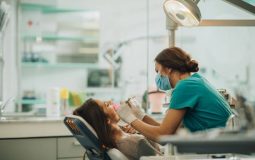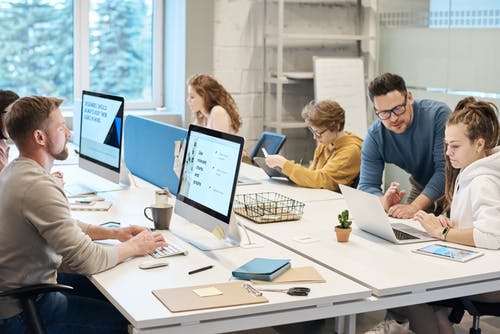As the coronavirus pandemic continues to surge in many parts of the world, businesses and industries of all types are looking for ways to keep their employees and customers safe. One method that is gaining popularity is UV disinfection.
This technology involves using ultraviolet light to kill bacteria and viruses. This type of technology has been used for years in hospitals and other healthcare settings. However, it is now being adopted by businesses from different industries as a way to combat the spread of disease, such as grocery stores disinfection.
What Is UV Disinfection?
UV disinfection uses ultraviolet light to kill microorganisms. The UV spectrum is divided into UVA, UVB, and UVC. UVC is the most harmful to human health, but it’s also the most effective at killing viruses and bacteria. That’s why it’s the type of UV light used in UV disinfection.
How Does UV Disinfection Work?
UV disinfection works by damaging the DNA or RNA of microorganisms. This damage prevents them from replicating, which effectively kills them.
While UV light can kill a variety of bacteria and viruses, it’s important to remember that it doesn’t work instantly. The time it takes to disinfect a space depends on the intensity of the UV light and the amount of time the light is in contact with the microorganisms.
Is UV Disinfection Effective Against COVID-19?
There are still many things to discover about COVID-19, but what we do know is that it’s a respiratory virus that primarily spreads through droplets from coughing or sneezing.
Studies have shown that UV disinfection can be effective against similar viruses, such as influenza. While more research is necessary to confirm its efficacy against COVID-19 specifically, UV disinfection is a promising option for helping to reduce the spread of the virus.
Are There Any Risks Associated With UV Disinfection?
UV light can be harmful to human skin and eyes, so people must not be in the room during a UV disinfection process.
There are also potential risks to the environment if UV-C light is not used properly. For example, if UV-C light reflects off surfaces, it can cause ozone depletion. Ozone depletion can increase UV radiation exposure, harming both people and the environment.
How Can Industries Use UV Disinfection in Many Industries?
UV disinfection can be used in various industries to help reduce the spread of bacteria and viruses.
Hospitals are one industry that can benefit from UV disinfection. They can have a sterilization room in hospital where UV light can be used to disinfect equipment and surfaces.
Grocery stores can also use UV disinfection to help keep their stores clean. For example, they can use UV light to disinfect shopping carts and other hard surfaces that customers frequently touch.
UV disinfection can also be used in office buildings, schools, daycares, and other public spaces.
Businesses should consult with an expert to determine how to incorporate UV disinfection into their space. An expert can help identify the right type of UV light and intensity needed to effectively kill microorganisms while minimizing risks to people and the environment. For instance, an air purification company that specializes in UV disinfection.
Conclusion
UV disinfection is a promising option for businesses and industries looking for ways to combat the spread of disease. You must consult with an expert to determine the best way to incorporate UV disinfection into your business while minimizing risks to people and the environment.









